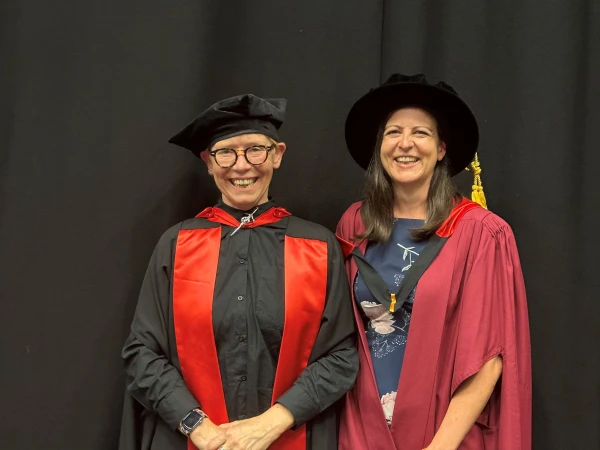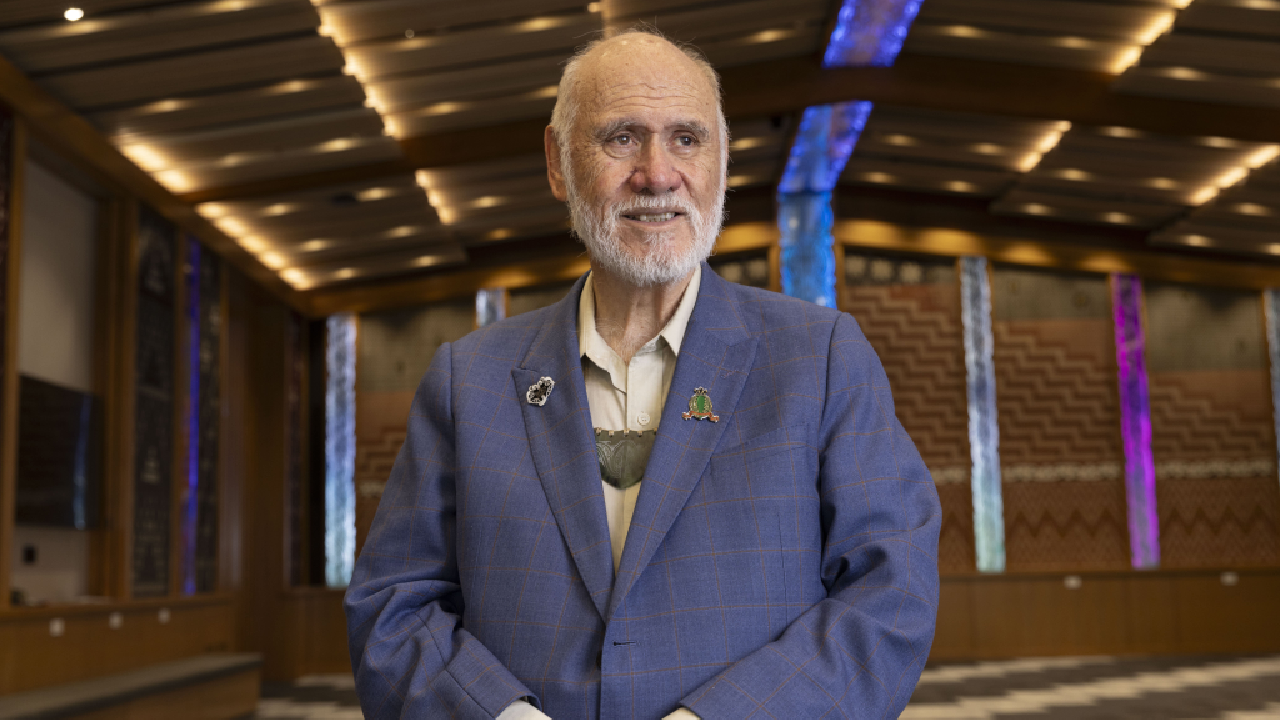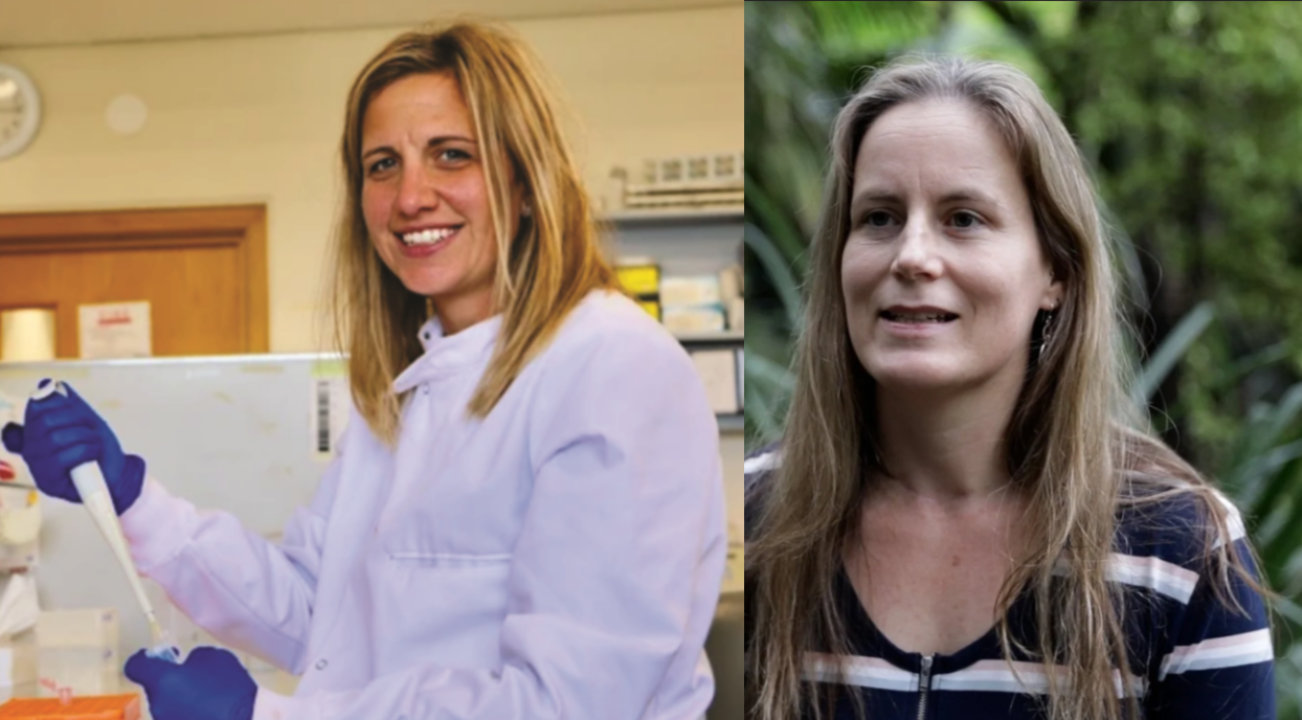University of Waikato graduate Dr Sophie Curtis-Ham has been awarded the 2022 Koko Kairangi Award for Best Doctoral Thesis for her research on geographic profiling for investigative police work. The award was established by the university to recognise excellence amongst their doctoral candidates.

Dr Sophie Curtis-Ham (right) and one of her two PhD supervisors, Professor Devon Polaschek.
“The result of Sophie’s research, is a body of work that is already influencing international researchers, and will certainly help police resources go farther.” Professor Devon Polaschek.
Police and investigative psychology researcher Dr Curtis-Ham has been quietly leading work to advance geographic profiling for a New Zealand context. Geographic profiling is a subset of criminal profiling and forensic psychology based on decades of evidence of criminal offenders and geography. Offenders have a mental map of the physical area in which they operate and they tend to commit crimes near places — ‘activity nodes’ — that are familiar to them from their everyday activities.
Geographic profiling is labour intensive and has been typically reserved for more serious offending, or when there are a number of offences linked to the same unknown offender. It is used to prioritise suspect lists for further investigation.
Dr Curtis-Ham qualified as a Geographic Profiling Analyst in the UK and returned home to work with the New Zealand Police. In her day to day work she identified her PhD topic, the need for a method to reduce the time required for manual analysis of geographic data, that also eliminated subjectivity and human error.
She chose to undertake the work at the University of Waikato, citing her chief supervisor, Professor of Psychology Devon Polaschek as, “an absolute drawcard”. Professor Polaschek said, “Sophie is my favourite combination of committed scientist—proposing new theory and then rigorously testing it—and equally committed practitioner.”
To build an algorithm for a geographic profiling technique, Dr Curtis-Ham worked with local burglary, robbery, and non-family based sexual assault crime data to assure it was telling a similar story to off-shore research. She then built on the prior research by exploring which places people are more likely to commit crime near. She said, “I could see from my work with police, that data on suspects’ activity nodes could be used to produce faster, more reliable results.”
 Pictorial representation of the geographic profiling algorithm developed by Dr Curtis-Ham.
Pictorial representation of the geographic profiling algorithm developed by Dr Curtis-Ham.
The technique uses suspects home addresses and locations for prior offenses, with the novel inclusion of wider activity nodes, for example the addresses of work or school, and recreational locations—to better prioritise a list for further investigation.
The practical outcome of Dr Curtis-Ham’s thesis Spatial signatures and mental maps: Using offenders’ activity locations to enhance geographic profiling for crime investigations, is the Geographic Profiling: Suspect Mapping and Ranking Technique (GP-SMART). GP-SMART has been tested on thousands of solved cases, showing it placed the actual offender at or near the top of the prioritised suspect list with promisingly high accuracy. She is now testing the tool with real crimes and cold cases, in her work at the New Zealand Police’s Evidence Based Policing Centre.
In 2023, Dr Curtis-Ham’s work has been recognised with the University of Waikato Koko Kairangi Award. She said, “The prize has been personally very affirming of my research. I’m grateful to my supervisors at Waikato University, and to Professor Wim Bernasco from NSCR for his expert technical advice.”
Dean of Graduate Research Professor Karin Bryan, a member of the Scholarship Executive who awarded the prize, said, "It is fabulous to see that high-quality doctoral work can be combined with useful outcomes for New Zealanders, again proving the value of the deeper thinking required in the Doctoral qualification for addressing societal problems."



